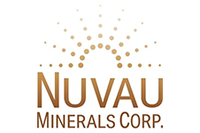Just three years into the game, the company has a producing and profitable mine. President and CEO Steve Williams explains how Pasinex did it.
Pasinex Resources (CSE:PSE) may not be the best-known zinc company, but it has a story that President and CEO Steve Williams believes is unique in the junior mining space: just three years into the game, it’s got a producing and profitable mine.
The company is mining high-grade, direct-shipping zinc at the Turkey-based Pinargozu mine. The mine, along with the exploration-stage Akkaya property, makes up the Horzum regional project, which is a 50/50 joint venture with Akmetal. To date, Pasinex has mined 13,000 tonnes of oxide ore at 30 percent zinc at Pinargozu, and during the first six months of 2015 the operation generated net income of C$700,576.
While that might sound modest, Pasinex has made it clear that it’s got a larger game plan: creating a mid-tier zinc company. It plans to do that by using the money it’s generating from mining to complete more exploration work and ultimately build a much larger zinc resource at Pinargozu.
To learn more about Pasinex’s future plans and how operating in Turkey has contributed to the company’s success so far, the Investing News Network sat down with Williams to get the scoop. Here’s what he had to say.
Mining in Turkey
Turkey is gaining some momentum as a mining jurisdiction. Aside from Pasinex’s operations, the country hosts projects belonging to major miners like Teck Resources (TSX:TCK.B,NYSE:TCK) and Eldorado Gold (TSX:ELD,NYSE:EGO), as well as projects owned by smaller companies such as Mariana Resources (LSE:MARL) and Pilot Gold (TSX:PLG). However, interest in the country is a fairly recent development.
Why? As Williams explained, in the 2000s a “huge majority” of Turkey’s 43,000 mining licenses were owned by families and small businesses, which had been encouraged by the government to buy them. Unfortunately, those entities for the most part didn’t have the resources to complete exploration work.
“A lot of Turkey’s geological opportunity was held up and not being explored because it was in the hands of people that weren’t able to explore,” said Williams.
That changed in 2010, when Turkey changed the rules surrounding mining licenses. As it stands now, “if you have an exploration license, you must explore. Basically use it or lose it.” According to Williams, “that caused all sorts of licenses to be released back to the government and become available.”
Companies like Pasinex have since taken up some of those newly available licenses, and for Williams that’s not surprising given Turkey’s “great geology” — largely attributed to its mountainous terrain.
The country’s infrastructure doesn’t hurt either. Williams said that Turkey’s current government, which came to power in 2003, is very pro-business, and in the last 15 years or so has spent “a huge amount of money … on upgrading roads, upgrading electrical distribution networks, upgrading ports [and] upgrading the airport.”
High-grade, direct-shipping zinc
Those conditions are part of the reason Pasinex has been able to thrive. As mentioned, the company has been in the game for just three years and already has a producing and profitable mine.
However, they’re not the only things that have contributed to the company’s success. Williams emphasized that Pasinex wouldn’t have been able to get this far without Akmetal. “Having a strong joint venture partner is critical,” he said, adding that one benefit of the partnership is that Pasinex has been able to rent equipment from Akmetal.
Pasinex also has an advantage in that the product it’s producing is rare. As noted, the company is mining high-grade, direct-shipping zinc, and according to Williams that’s a major plus.
To explain just how positive those characteristics are, Williams made a comparison, noting, “if I converted that to gold grade, that would be about 10 to 12 grams of gold per tonne.” He added that while high grade doesn’t always equate to direct shipping, “in our case, it’s high grade and it’s direct shipping. The high grade is great because you have an immediate profitability advantage, but direct shipping is even greater because … it takes out all the capital required for processing.”
Building a mid-tier zinc company
Currently, the money Pinargozu is generating can cover Pasinex’s exploration costs, but not its corporate costs. However, Williams isn’t concerned given that continuing to operate as normal is not the company’s end goal. That, of course, is to use the money from Pinargozu to become a mid-tier zinc company.
As stated, that will entail exploration, which the company has been pursuing with vigor this year at Pinargozu. Through to the end of September, it had completed 34 surface holes, with 76 percent of them hitting mineralization; it had also completed 28 underground holes, 40 percent of which hit.
Over the next 12 months, Pasinex plans to do more drilling at Pinargozu, and and will ultimately release a resource estimate for the property. The company is also aiming to double its production rate there by the first quarter of 2016. On a different note, Pasinex started drilling at Akkaya earlier this year, and has plans to start early exploration on eight new properties.
Securities Disclosure: I, Charlotte McLeod, hold no direct investment interest in any company mentioned in this article.
Editorial Disclosure: The Investing News Network does not guarantee the accuracy or thoroughness of the information reported in the interviews it conducts. The opinions expressed in these interviews do not reflect the opinions of the Investing News Network and do not constitute investment advice. All readers are encouraged to perform their own due diligence.
Pasinex Resources is a client of the Investing News Network. This article is not paid-for content.
Related reading:
Glencore to Cut Annual Zinc Output by 500,000 Tonnes
Zinc Stocks Surge as Glencore Cuts Output
How is Glencore Influencing the Nickel Price Today?
